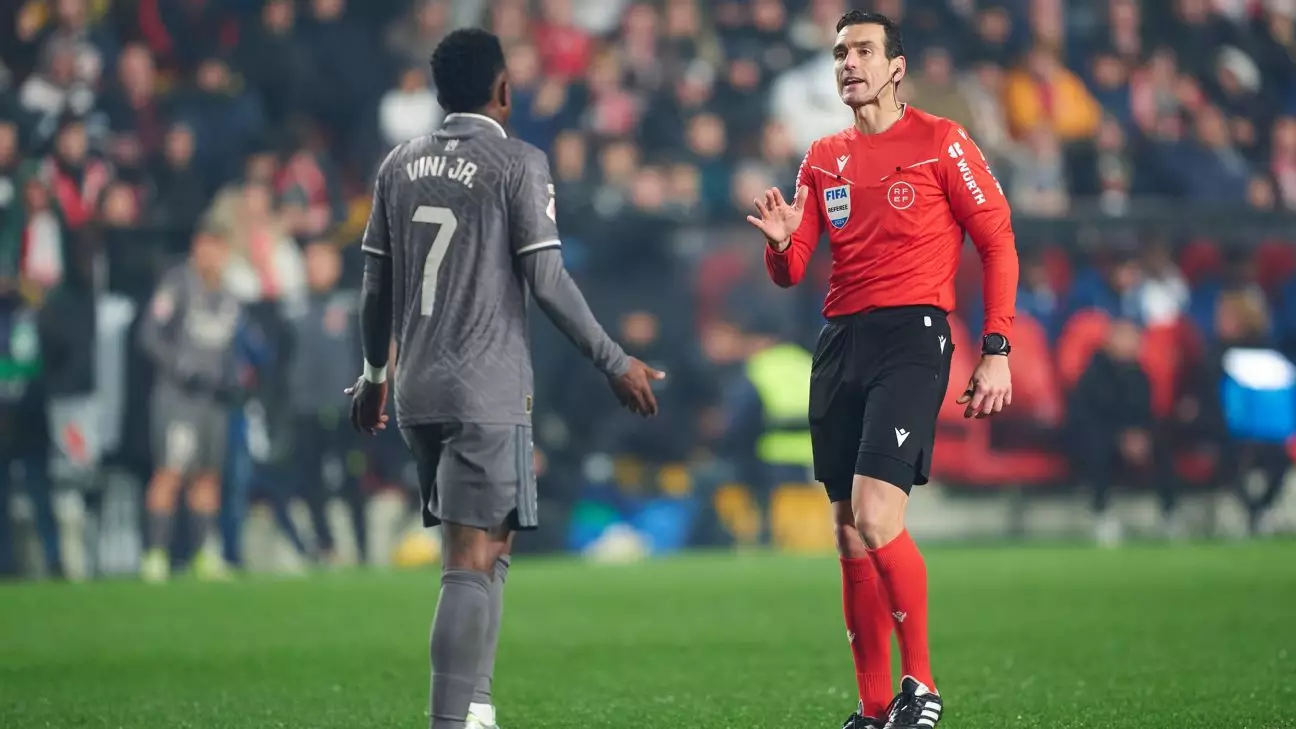The recent LaLiga match between Real Madrid and Rayo Vallecano has ignited a significant conversation surrounding player conduct and fan behavior. The thrilling 3-3 draw not only showcased the intense competitive spirit between the two teams but also highlighted the complex interactions between players and fans. One pivotal moment occurred when Brazilian forward Vinícius Júnior, after being subjected to chants from the crowd, made what many have interpreted as an inflammatory gesture suggesting that Rayo Vallecano would face relegation. This incident drew sharp reactions from multiple stakeholders in the football community, igniting debates about the cultures surrounding football fandom in Spain.
In the wake of the match, LaLiga announced its intention to file reports concerning both the chant towards Vinícius and his subsequent gesture. This dual reporting underscores the league’s commitment to addressing incidents of potential provocation and misconduct. LaLiga president Javier Tebas confirmed this course of action but notably clarified that, from his perspective, racist chants were not present during the match. His comments illuminate an ongoing struggle within the league to differentiate between acceptable fan expression and actions that cross the line into disrespect or hostility, especially actions that can exacerbate tensions in a sport deeply rooted in national pride and club loyalty.
Rayo Vallecano president Raúl Martín Presa was vocal in his disappointment regarding Vinícius’ gesture, labeling it as “not correct,” especially in the context of the importance of staying in the top tier for smaller clubs. His remarks encapsulated a broader concern for mutual respect between fans and players. The implications of such an exchange echo louder when considering the precarious position of clubs that often face relegation threats, allowing sentiments of survival and despair to overshadow the sport’s inherently competitive nature. This incident challenges both players and clubs to navigate the delicate balance between passion and professionalism.
What occurs on the pitch often extends beyond merely a game; it becomes a reflection of societal values, collective emotions, and the ethos surrounding football culture. The Vinícius incident serves as a timely reminder that players are not just athletes; they are public figures whose actions can spark broad discussions about civility in sports. Moving forward, LaLiga’s disciplinary committee will have to carefully evaluate the details of the incident while reflecting on the broader context of fan-player dynamics. The potential consequences of the reported incidents might set precedents for how such interactions are managed in the future.
This entire situation illustrates the pressing need for continued dialogue among players, clubs, and fans regarding acceptable behavior in football arenas. The vitality of football as a sport lies in its ability to bring people together, but it can be marred by moments that provoke divisiveness. As LaLiga takes steps to address this matter, it remains crucial for all involved to foster a culture where rivalry exists healthily, and respect prevails. The focus should not only be on penalties and reports but also on promoting sportsmanship and understanding in the beautiful game.

Leave a Reply